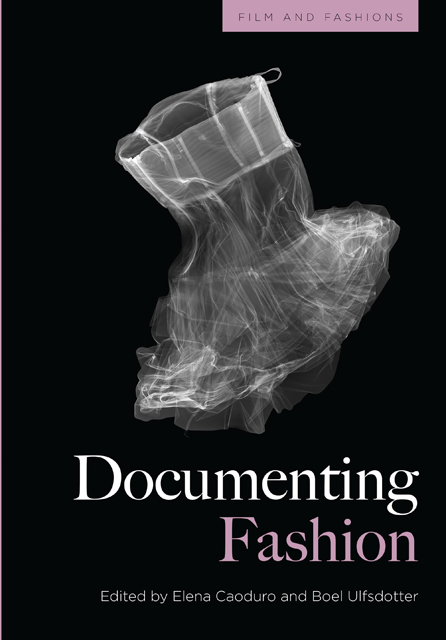1 - Fashion documentaries and the tension between celebratory and critical approaches
Published online by Cambridge University Press: 20 October 2023
Summary
Documentaries are hitting a golden age: a boom of theatrical features, and a frenzy of factual television and video productions made available by streaming services and digital channels. For Bill Nichols (2015: xi), this distinct period in documentary film-making is due to the ‘proliferation of new ways to make, structure, and distribute documentaries’. More specifically, Thomas Austin and Wilma de Jong (2008: 1) point out that these significant changes at the turn of the new millennium reshape the ‘technological, commercial, political, and social dimensions of documentaries’. There is a big appetite for factual content, character-driven stories and experimental modes of narration, and fashion has ridden this wave, increasing its presence in the media and feeding the demand for factual fashion-focused content.
Over the past fifteen years, documentaries about fashion have flourished, to the extent that one could speak of a new subgenre. The fashion documentaries engage with a variety of subjects: designers (Valentino Garavani depicted in Valentino: The Last Emperor by Matt Tyrnauer, 2008; Guo Pei in Yellow is Forbidden by Pietra Brettkelly, 2018; Frida Giannini in The Director: An Evolution in Three Acts by Christina A. Voros, 2013); editors, stylists, photographers and other fashion industry professionals (Franca Sozzani in Franca: Chaos and Creation directed by her son, Francesco Carrozzini, 2016; André Leon Talley in The Gospel According to André by Kate Novack, 2017; Helmut Newton: The Bad and the Beautiful by Gero von Boehm, 2020); but also institutions and fashion-related events (The First Monday in May by Andrew Rossi, 2016; Scatter My Ashes at Bergdorf's by Matthew Miele, 2014). Concurrently, issues related to labour and the environmental and human impact of the fashion industry have come to the fore (Girl Model by Ashley Sabin and David Redmon, 2011; Alex James: Slowing Down Fast Fashion by Ben Akers, 2016), as well as representations of the relationship between fashion and identity and the body (Suited by Jason Benjamin, 2016 and A Perfect 14 by Giovanna Morales Vargas, 2018), to cite just a few). This brief list is not a comprehensive categorisation of fashionfocused documentaries, it merely illustrates the extent of the phenomenon.
- Type
- Chapter
- Information
- Documenting Fashion , pp. 11 - 31Publisher: Edinburgh University PressPrint publication year: 2023

